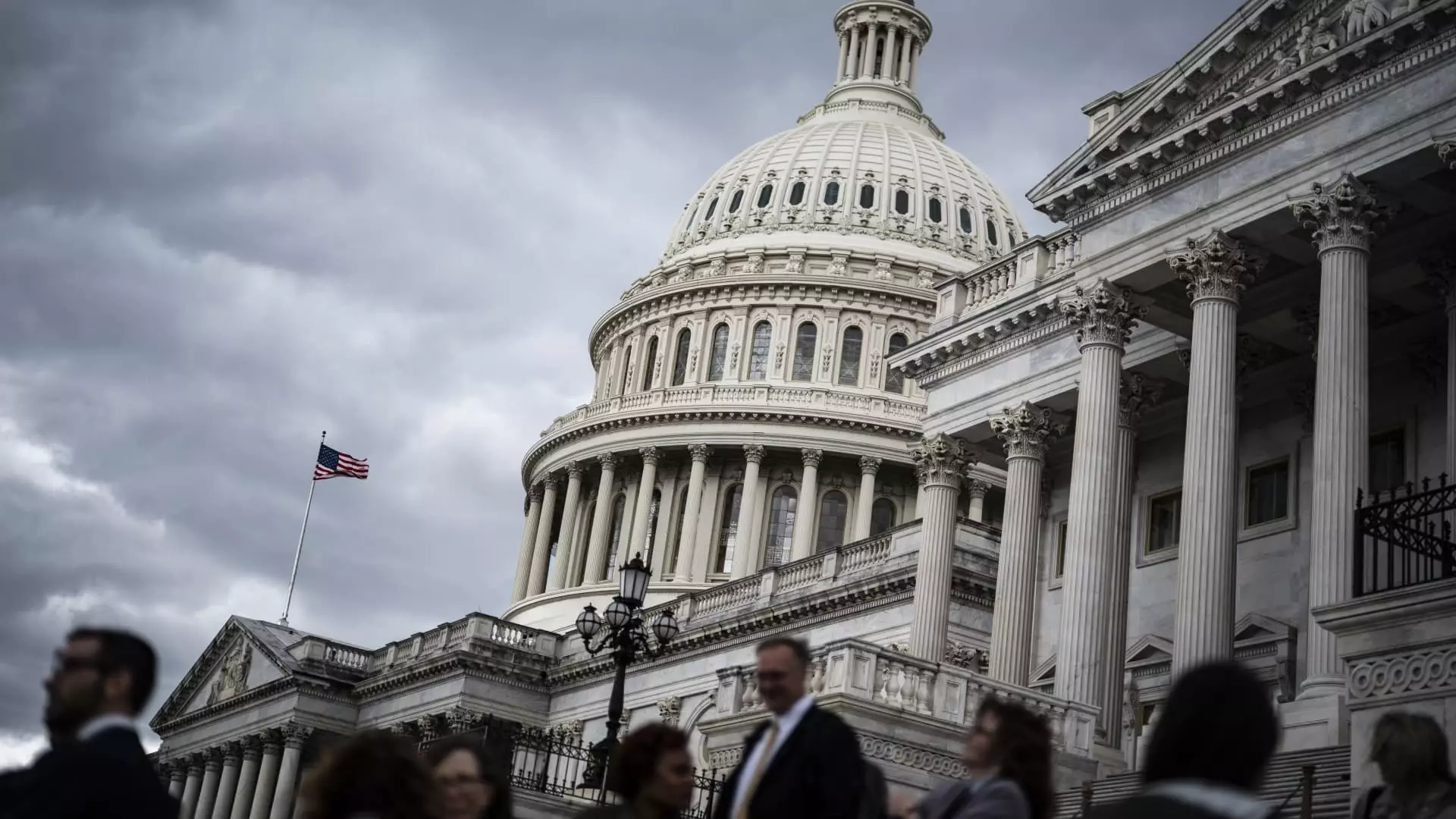The ongoing debate surrounding the operation of Chinese-owned TikTok in the U.S. has reignited concerns about the risk associated with Chinese stocks in the midst of a U.S. presidential election year. The introduction of bills aimed at restricting Chinese biotech companies and other policy proposals has prompted analysts at Goldman Sachs to reassess their model for measuring the level of risk stemming from U.S.-China tensions in Chinese stocks. While the revised U.S.-China tensions barometer currently stands at a relatively optimistic 53 out of 100, it is crucial to consider the various factors influencing this outlook.
According to the analysts at Goldman Sachs, recent events have led to an increase in risks associated with ‘Soft Tech’ companies due to market volatility resulting from proposed bills like the BioSecure Act and restrictions on advanced technologies. The House Select Committee’s draft of the BioSecure Act, which aims to limit federally funded medical providers from working with certain foreign biotech companies, including those from China, has raised concerns about the future prospects of Chinese healthcare companies and exporters to the U.S.
The introduction of bills like the one targeting TikTok in the House of Representatives and the potential implications of the BioSecure Act have highlighted the ongoing challenges faced by Chinese companies operating in the U.S. While there is bipartisan agreement on the need to address national security risks posed by certain foreign entities, the specifics of how these bills will be implemented and enforced remain uncertain.
Despite the regulatory challenges facing Chinese companies in the U.S., investors are still expressing interest in popular platforms like TikTok. The potential sale of TikTok has garnered attention from former Treasury Secretary Steven Mnuchin, who has expressed support for the legislation and is reportedly assembling a group to acquire the app. However, the impending U.S. presidential election adds another layer of uncertainty to the situation, as both the Trump and Biden administrations have taken significant steps to address U.S.-China relations.
Given the evolving nature of the U.S.-China tensions and the shifting legislative landscape, it is essential for investors to analyze the potential impact on Chinese stocks. While some sectors, such as consumer companies, may benefit from escalating tensions, others like tech hardware and semiconductors could face challenges in a de-escalation scenario. Understanding the market dynamics and regulatory environment is crucial for making informed investment decisions amidst the uncertainty surrounding U.S.-China relations.
The impact of U.S.-China tensions on Chinese stocks is a multifaceted issue that requires careful consideration of legislative developments, market dynamics, and investor sentiment. As the regulatory landscape continues to evolve, investors must stay vigilant and adapt their strategies to navigate the challenges and opportunities that arise in the current geopolitical environment.

